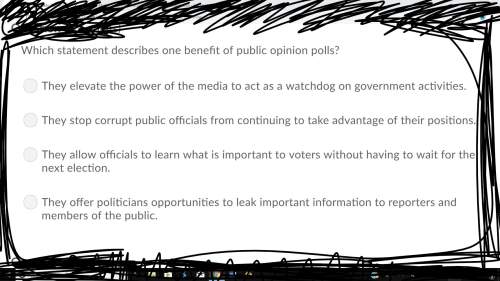
PLEASE HURRY AND ANSWER!
Nigeria is one of Sub Saharan Africa’s largest economies and relies heavily on oil as its main source of foreign exchange earnings and government revenues. Following the 2008-09 global financial crises, the banking sector was effectively regulated and has improved greatly. Since then, Nigeria’s economic growth has been driven by growth in agriculture, telecommunications, and services. Economic diversification and strong growth have not translated into a significant decline in poverty levels; however, over 62% of Nigeria's 170 million people still live in extreme poverty.
Despite its strong fundamentals, oil-rich Nigeria has been hobbled by inadequate power supply, lack of infrastructure, delays in the passage of legislative reforms, an inefficient property registration system, restrictive trade policies, an inconsistent regulatory environment, a slow and ineffective judicial system, unreliable dispute resolution mechanisms, insecurity, and pervasive corruption. Regulatory constraints and security risks have limited new investment in oil and natural gas, and Nigeria's oil production had been contracting every year since 2012 until a slight rebound in 2017.
President Buhari, elected in March 2015, has established a cabinet of economic ministers that includes several technocrats, and he has announced plans to increase transparency, diversify the economy away from oil, and improve fiscal management, but his reliance on the Central Bank governor has led to protectionist policies aimed at defending the naira from further devaluation. President Buhari ran on an anti-corruption platform, and has made some headway in alleviating corruption, such as an implementation of a Treasury Single Account that allows the government to better manage its resources. The government also is working to develop stronger public-private partnerships for roads, agriculture, and power.
Partly because of lower oil prices, Nigeria entered a recession in 2016. However, GDP growth turned positive, with oil prices recovering and output stabilizing in 2017.
According to the text, despite diversifying their economy since 2009, what crisis still affects the country of Nigeria today?
Group of answer choices
A lack of oil production
Over ½ of the population lives in extreme poverty
¾ of the population cannot read or write
The country is land locked and in the middle of the Sahara Desert.

Answers: 3


Another question on History

History, 21.06.2019 23:00
Which statement describes an important outcome of the congress of vienna? a. napoleon launched his final european military campaigns. b. european states had their borders clearly defined. c. jewish people were given equal right in germanic states d. the slave trade became increasingly important to european economies.
Answers: 1

History, 22.06.2019 01:30
Brainliestttme : describe the following event: increase in islamic extremism in the middle east
Answers: 1

History, 22.06.2019 01:40
Select the five weaknesses of the articles of confederation. congress could not declare war or establish an army. congress could not levy taxes. congress could not control trade. not all the states were represented in congress. no national court system. no executive to enforce the laws. congress could not negotiate with foreign governments. the national government could not borrow money. nine of the states had to agree to pass a law.
Answers: 3

History, 22.06.2019 03:30
Describe the pure of the counter-reformation and the circumstances and outcomes of the council of trent. include the role of the jesuits in your assessment. conduct independent research, as needed, to support your answer with specific historical information.
Answers: 2
You know the right answer?
PLEASE HURRY AND ANSWER!
Nigeria is one of Sub Saharan Africa’s largest economies and relies heavil...
Questions





Mathematics, 25.03.2020 22:36




Mathematics, 25.03.2020 22:37


Computers and Technology, 25.03.2020 22:37


Computers and Technology, 25.03.2020 22:37



Biology, 25.03.2020 22:37


Mathematics, 25.03.2020 22:37


Mathematics, 25.03.2020 22:37




